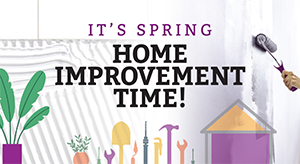by Lee H. Hamilton
To me, it was a thunderclap. Years ago, when I was in Congress, we were in the midst of a tense, contentious debate. Members had gotten irritated, levying charges back and forth, and tempers were rising. Then one member stood up, asked for our attention, and said to us, “Let’s remember: trust is the coin of the realm.”
His statement at that moment hit me broadside: If we were to have any hope of progress, we had to have some faith in one another — even our opponents. It was a lesson I’ve never forgotten.
Our system rests on all sorts of values: open-mindedness, an informed citizenry, honesty, civility, competence. But at its heart, representative democracy is about how we resolve our differences, and if the parties lack trust, then it becomes hugely more difficult to do so.
A representative democracy rests on a straightforward premise: Because nothing gets done without others, you have to have confidence in people and believe that they will do what they say they will do. Without that trust, you simply can’t engage productively in negotiations, compromise, debate, and all the mechanisms we use to resolve differences in our society.
When we don’t trust one another — or don’t trust one another’s facts — reaching agreement and drafting laws becomes infinitely more difficult. The result is that often, cynicism, suspicion, and lack of confidence in the system hamstring our democracy.
To be sure, healthy skepticism about adversaries is natural and appropriate, but you can’t let it override everything and bring progress to a screeching halt. I would argue that one reason our government no longer works as well as it once did and should now, is that our trust in one another has diminished.
So what can we do about this? I think it’s vital that elected officials — especially of opposing parties — spend time with one another, learning to see one another as human beings who all, regardless of party, care deeply about the country. Similarly, the more ordinary people participate regularly in organizations, political parties, and even ad hoc efforts to improve their communities and states, the more likely they are to learn the fundamental importance of trust.
The fact is: In a system that depends on negotiation, compromise, and cooperation to achieve our goals, finding ways to build trust is essential. Without it, our democracy simply won’t work.
Lee Hamilton is a Senior Advisor for the Indiana University Center on Representative Government; a Distinguished Scholar at the IU Hamilton Lugar School of Global and International Studies; and a Professor of Practice at the IU O’Neill School of Public and Environmental Affairs. He was a member of the U.S. House of Representatives for 34 years.






